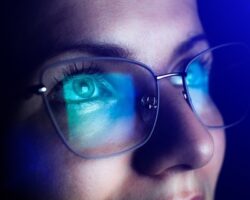The Importance of Reducing Blue Light Before Bedtime
 The Importance of Reducing Blue Light Before Bedtime
The Importance of Reducing Blue Light Before Bedtime
In today’s digital age, we are surrounded by screens emitting blue light from our smartphones, tablets, computers, and televisions. While these devices have become an integral part of our lives, it’s crucial to recognize the impact they can have on our sleep quality. The human body is naturally tuned to the rising and setting of the sun, and exposure to blue light in the evening can disrupt our natural sleep-wake cycle, known as the circadian rhythm.
Blue light has a short wavelength and higher energy compared to other colors in the light spectrum. When exposed to blue light in the evening, our brains receive signals that inhibit the production of melatonin, a hormone that regulates sleep. Reduced melatonin levels make it harder to fall asleep, leading to difficulties in achieving restful and sufficient sleep.
By reducing exposure to blue light before bedtime, we can promote better sleep hygiene and overall well-being. Here’s why it’s important:
Improved Sleep Quality: Reducing blue light exposure in the evening allows our bodies to naturally produce melatonin, signaling to the brain that it’s time to wind down and prepare for sleep. This leads to more restful and rejuvenating sleep, resulting in increased energy, improved mood, and better cognitive function during the day.
Enhanced Circadian Rhythm: Consistently exposing ourselves to blue light in the evening can disrupt our internal body clock, causing irregular sleep patterns and difficulty in waking up in the morning. By minimizing blue light exposure, we help synchronize our circadian rhythm, promoting a more natural and predictable sleep-wake cycle.
Reduced Digital Stimulus: Engaging with electronic devices before bed can stimulate our minds and heighten alertness, making it harder to relax and fall asleep. By limiting blue light exposure, we reduce the digital stimulus that keeps our minds active, allowing us to unwind and prepare for a peaceful night’s sleep.
Eye Health: Prolonged exposure to blue light can strain our eyes and contribute to digital eye fatigue. By minimizing blue light in the evening, we give our eyes a break and reduce the risk of discomfort, dryness, and potential long-term effects associated with excessive screen time.
To reduce blue light exposure before bedtime, consider implementing the following habits:
Dim the brightness of electronic devices or use apps that filter blue light.
Use warm-colored or amber-tinted glasses designed to block blue light.
Establish a device-free wind-down routine that includes activities like reading, meditation, or taking a warm bath.
In Conclusion
Reducing blue light exposure in the evening is crucial for optimal sleep and overall health. By adopting habits that prioritize sleep hygiene and limit exposure to blue light, we can promote a more balanced and restorative sleep pattern, leading to improved well-being and a better quality of life.
